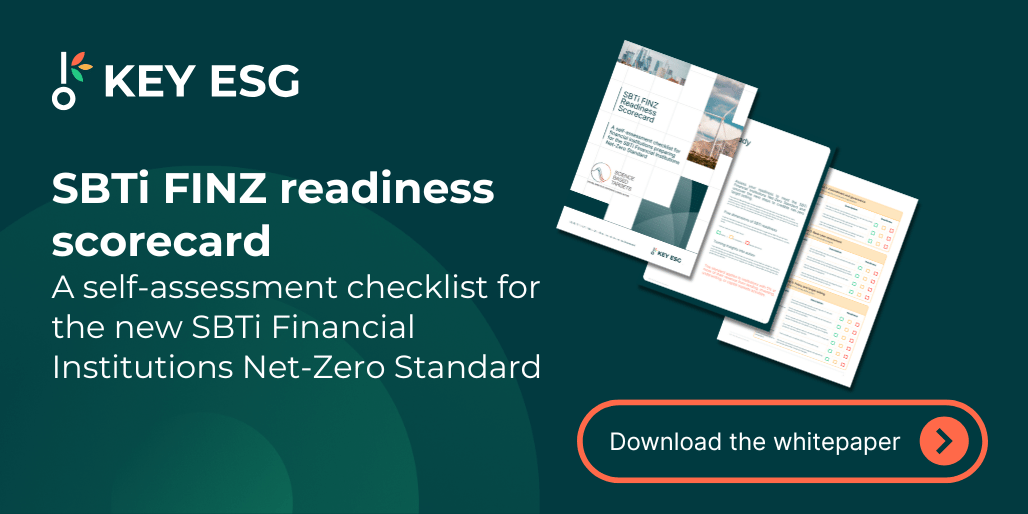California's venture capital (VC) scene is renowned for being a global powerhouse, driving forward investment in a wide range of different industries. Legislative changes in California’s investment laws affect venture capitalists from all around the world, and the 2023 laws surrounding VC diversity were no different.
For years, the VC industry, particularly in California's Silicon Valley, has been critiqued for its lack of diversity. Research by RateMyInvestor and DiversityVC has shown that the significant majority of funding has historically gone to companies led by white, male founders.
In acknowledgement of this pattern, the state of California has disclosed new laws to help improve diversity and inclusion (D&I) in the VC landscape.
The Problem
In the early stages of a start-up’s development, investment choices are based less on finances and more on intuition.
Further on in a company’s progression, investors focus more on figures. However, at this early stage, there is little tangible data available for review.
VC investors can be swayed by the confidence of the person running the business, the charisma of their pitch, and whether or not they “have a good feeling about this”. When facts and figures aren’t so integral to the decision-making process, judgements can easily be influenced by conscious and unconscious biases.
In recent years, there has been a concerted effort within the industry to embrace diversity in founders and ideas. However, being aware of the problem and taking steps to tackle it are two very different things. Making efforts to improve D&I in investment has largely been a decision for VCs – not an obligation.
California’s new legislation aims to hold investors accountable through disclosure requirements, encouraging them to be conscious of their biases and take steps to mitigate them.
The Importance of VC Diversity
The push for diversity in the VC sector (and in the workforce more broadly) is driven by a recognition of several clear benefits:
- Innovation: Diverse teams are known to be more innovative, bringing together a broad range of perspectives to solve problems creatively.
- Market Reach: Startups with diverse leadership are better positioned to understand a wider array of markets.
- Financial Performance: Research indicates that companies with diverse leadership teams often outperform their more homogenous counterparts in terms of financial returns.
- Social Equity: Investing in diverse founders is a step toward rectifying the historical imbalances and barriers faced by underrepresented groups in the business world.
Our experts have written extensively on how private equity firms can optimise their approach to D&I.
What are the new laws?
Senate Bill (SB) 54 requires VCs to disclose demographic information related to the founding members of companies they invest in. The law is entitled ‘Fair Investment Practices by Investment Advisers’, and it will come into effect on 1st March 2025.
It is important to note that this legislation does not mandate diversity in investment, but instead mandates disclosure.
VCs will need to disclose information on investments annually, including figures on the amount of funds invested into each company. Information on each founder’s gender, race, ethnicity, disability status, and sexuality will be gathered. The disclosures will also note whether a founder is a veteran or a disabled veteran, whether they are a resident of California, and if any member of the founding team declined to provide answers on their demographic data.
Who must abide by the VC Diversity Laws?
VCs operating in California must abide by these new laws if they:
- Primarily engage in the business of investing in or providing financing to startup, early-stage or emerging growth companies, or manage assets on behalf of third-party investors; and
- Have a California nexus by (i) being headquartered in California, (ii) having a significant presence or operational office in California, (iii) making venture capital investments in businesses that are located in, or have significant operations in, California or (iv) soliciting or receiving investments from a person who is a resident of California.
SB 54 also covers private equity firms and other asset managers that have 50 percent or more of their assets made up of VC investments.
Looking Ahead
California's VC industry has made strides to improve diversity in recent years through an increase in the number of funds specifically targeting diverse founders and initiatives supporting underrepresented entrepreneurs. However, there’s still a long way to go. The proportion of VC investment going to diverse founders is still significantly low in comparison to the total amount of funding available and, for some demographics, it shows no signs of improvement.
The future of California’s VC diversity hinges on sustained efforts across the industry. It's about shifting mindsets, changing policies, and, most importantly, acknowledging that diversity is not just a moral imperative, but a business advantage.
Initiatives like diversity-focused funds, accelerator programs for underrepresented entrepreneurs, and transparency in funding data are all steps in the right direction.
As the world looks to Silicon Valley for the next wave of innovation, the hope is that it will see a VC ecosystem reflective of the world's diversity, ensuring that opportunity is not limited by background, gender, or race. In doing so, California has the potential to lead the way to creating a more equitable and inclusive future for companies around the world.
How KEY ESG can help
VCs must submit their first disclosure report on 1st March 2025, and the report must include details of every investment made in the year prior. This means that VCs need to begin logging their demographic data now.
Our experts track all new legislation on ESG metrics, and California’s VC Diversity Laws are one of many metrics that our team can help investors track.
Take a look at our customer case study to see how we helped 365 Finance to lead the way for D&I in their industry, or book a demo to find out how our platform can help you drive D&I best-practice in your firm.
California's venture capital (VC) scene is renowned for being a global powerhouse, driving forward investment in a wide range of different industries. Legislative changes in California’s investment laws affect venture capitalists from all around the world, and the 2023 laws surrounding VC diversity were no different.
For years, the VC industry, particularly in California's Silicon Valley, has been critiqued for its lack of diversity. Research by RateMyInvestor and DiversityVC has shown that the significant majority of funding has historically gone to companies led by white, male founders.
In acknowledgement of this pattern, the state of California has disclosed new laws to help improve diversity and inclusion (D&I) in the VC landscape.
The Problem
In the early stages of a start-up’s development, investment choices are based less on finances and more on intuition.
Further on in a company’s progression, investors focus more on figures. However, at this early stage, there is little tangible data available for review.
VC investors can be swayed by the confidence of the person running the business, the charisma of their pitch, and whether or not they “have a good feeling about this”. When facts and figures aren’t so integral to the decision-making process, judgements can easily be influenced by conscious and unconscious biases.
In recent years, there has been a concerted effort within the industry to embrace diversity in founders and ideas. However, being aware of the problem and taking steps to tackle it are two very different things. Making efforts to improve D&I in investment has largely been a decision for VCs – not an obligation.
California’s new legislation aims to hold investors accountable through disclosure requirements, encouraging them to be conscious of their biases and take steps to mitigate them.
The Importance of VC Diversity
The push for diversity in the VC sector (and in the workforce more broadly) is driven by a recognition of several clear benefits:
- Innovation: Diverse teams are known to be more innovative, bringing together a broad range of perspectives to solve problems creatively.
- Market Reach: Startups with diverse leadership are better positioned to understand a wider array of markets.
- Financial Performance: Research indicates that companies with diverse leadership teams often outperform their more homogenous counterparts in terms of financial returns.
- Social Equity: Investing in diverse founders is a step toward rectifying the historical imbalances and barriers faced by underrepresented groups in the business world.
Our experts have written extensively on how private equity firms can optimise their approach to D&I.
What are the new laws?
Senate Bill (SB) 54 requires VCs to disclose demographic information related to the founding members of companies they invest in. The law is entitled ‘Fair Investment Practices by Investment Advisers’, and it will come into effect on 1st March 2025.
It is important to note that this legislation does not mandate diversity in investment, but instead mandates disclosure.
VCs will need to disclose information on investments annually, including figures on the amount of funds invested into each company. Information on each founder’s gender, race, ethnicity, disability status, and sexuality will be gathered. The disclosures will also note whether a founder is a veteran or a disabled veteran, whether they are a resident of California, and if any member of the founding team declined to provide answers on their demographic data.
Who must abide by the VC Diversity Laws?
VCs operating in California must abide by these new laws if they:
- Primarily engage in the business of investing in or providing financing to startup, early-stage or emerging growth companies, or manage assets on behalf of third-party investors; and
- Have a California nexus by (i) being headquartered in California, (ii) having a significant presence or operational office in California, (iii) making venture capital investments in businesses that are located in, or have significant operations in, California or (iv) soliciting or receiving investments from a person who is a resident of California.
SB 54 also covers private equity firms and other asset managers that have 50 percent or more of their assets made up of VC investments.
Looking Ahead
California's VC industry has made strides to improve diversity in recent years through an increase in the number of funds specifically targeting diverse founders and initiatives supporting underrepresented entrepreneurs. However, there’s still a long way to go. The proportion of VC investment going to diverse founders is still significantly low in comparison to the total amount of funding available and, for some demographics, it shows no signs of improvement.
The future of California’s VC diversity hinges on sustained efforts across the industry. It's about shifting mindsets, changing policies, and, most importantly, acknowledging that diversity is not just a moral imperative, but a business advantage.
Initiatives like diversity-focused funds, accelerator programs for underrepresented entrepreneurs, and transparency in funding data are all steps in the right direction.
As the world looks to Silicon Valley for the next wave of innovation, the hope is that it will see a VC ecosystem reflective of the world's diversity, ensuring that opportunity is not limited by background, gender, or race. In doing so, California has the potential to lead the way to creating a more equitable and inclusive future for companies around the world.
How KEY ESG can help
VCs must submit their first disclosure report on 1st March 2025, and the report must include details of every investment made in the year prior. This means that VCs need to begin logging their demographic data now.
Our experts track all new legislation on ESG metrics, and California’s VC Diversity Laws are one of many metrics that our team can help investors track.
Take a look at our customer case study to see how we helped 365 Finance to lead the way for D&I in their industry, or book a demo to find out how our platform can help you drive D&I best-practice in your firm.


%20(1).avif)

%20(2).png)

